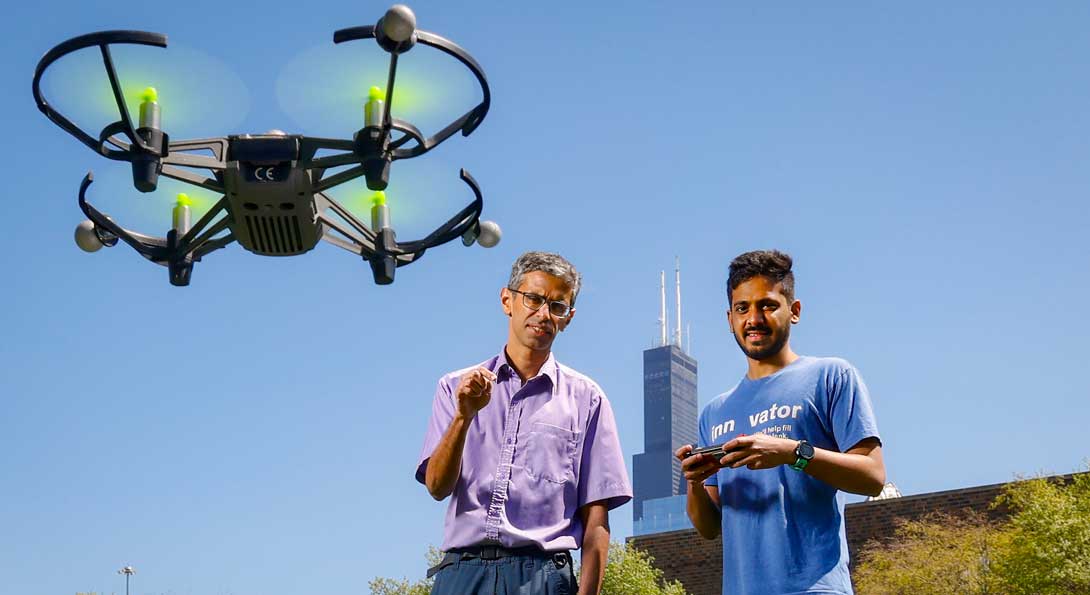Advance Power Technologies for Drones

Introduction
A new $6 million collaborative agreement between the U.S. Army Research Laboratory and engineers from the University of Illinois Chicago will develop fuels and technologies for sustainable aviation and autonomous vehicles.
The funding advances two projects started in 2020 to improve recharging and fuel-sensor technology. In one, UIC researchers Kenneth Brezinsky and Patrick Lynch will adapt a fuel-sensor system they developed to work with an emerging class of sustainable aviation fuels. In a parallel project, Pranav Bhounsule will continue to develop a system that recharges unmanned aerial vehicles in the field without the need for human involvement.
In the future, these innovations could help commercial aviation transition to sustainable fuels and improve the use of drones for package delivery and rescue operations, the scientists said.
“If there is a hurricane and you are trying to search for people in hard-to-access areas, then the best way to do it is probably drones,” Bhounsule said. “And then you could have ground vehicles provide charging, in replication of what we’re doing.”
In the first four years of their project, Brezinsky and Lynch developed new sensors that can detect the properties of fuel, then send signals to a drone’s engine about what adjustments to make.
Bhounsule is answering a different question: Can drones be recharged in the field without help from humans?
Current electric drones can only fly for 15 to 20 minutes before draining their batteries. Bhounsule, an assistant professor of mechanical and industrial engineering at UIC, has solved this problem by adding a second unmanned vehicle at ground level. As drones fly through an area, small, wheeled vehicles can act as mobile charging stations, traveling where they are needed most.